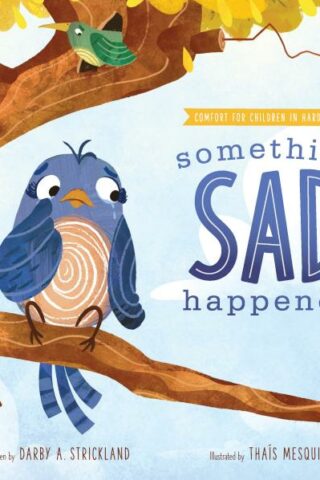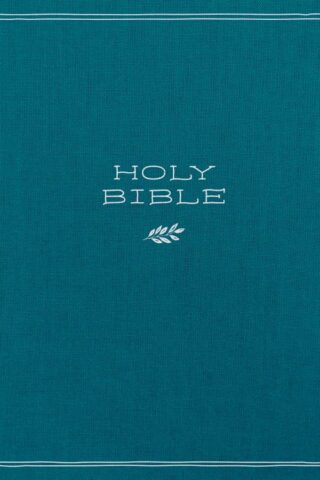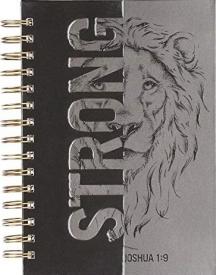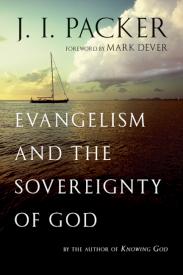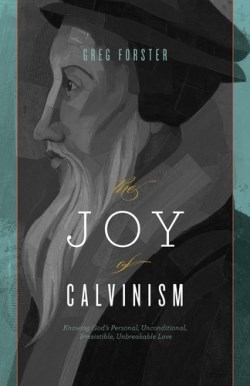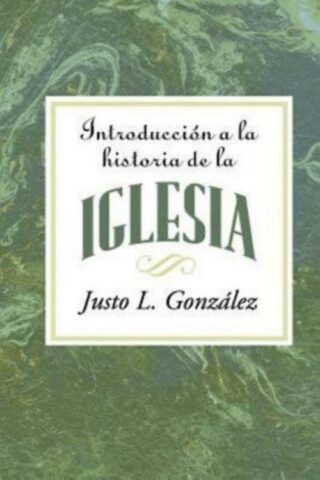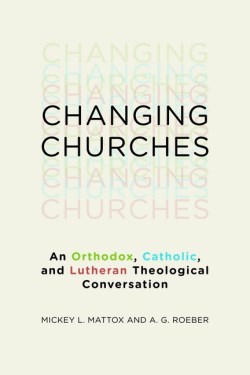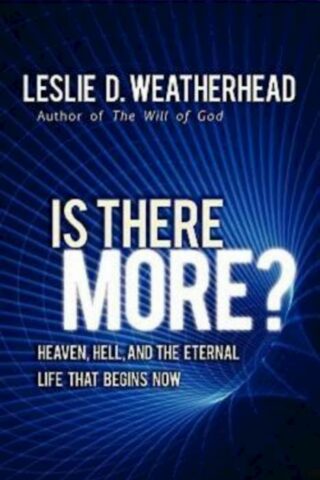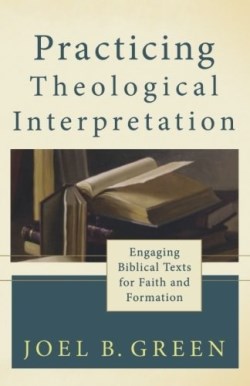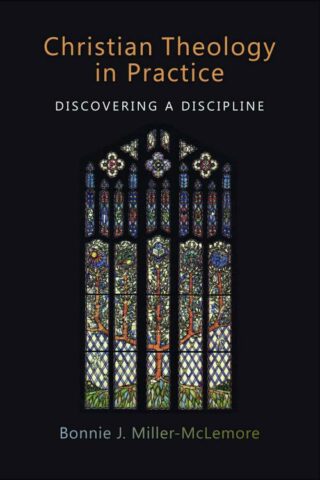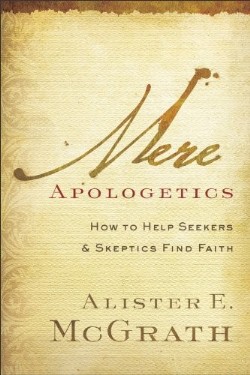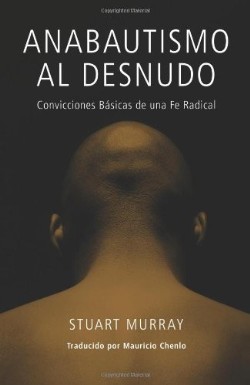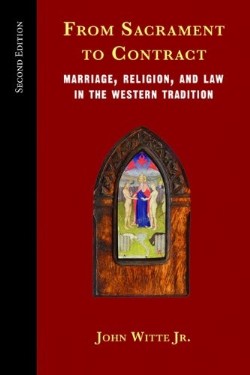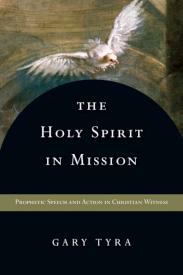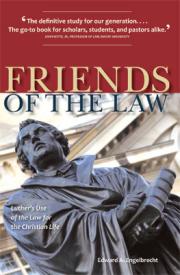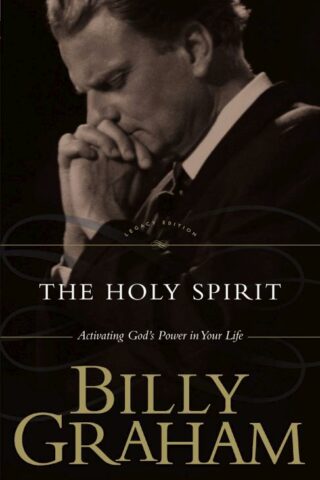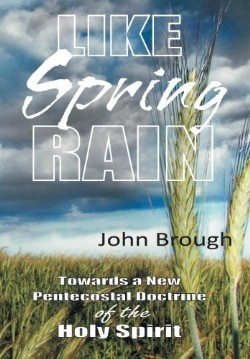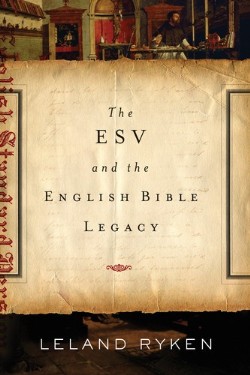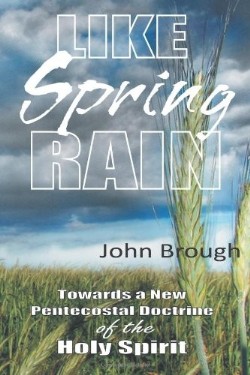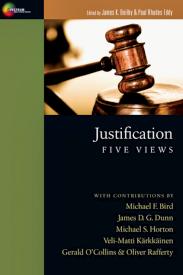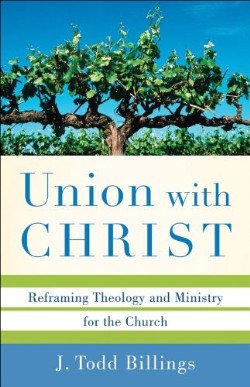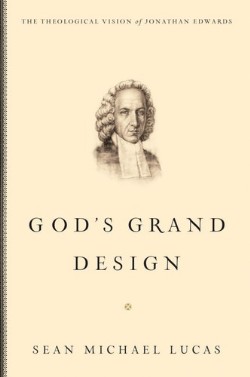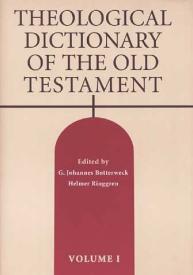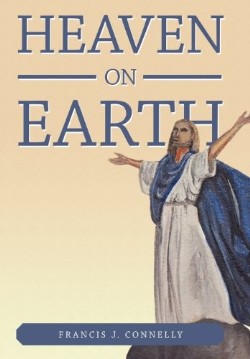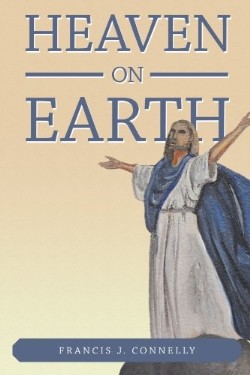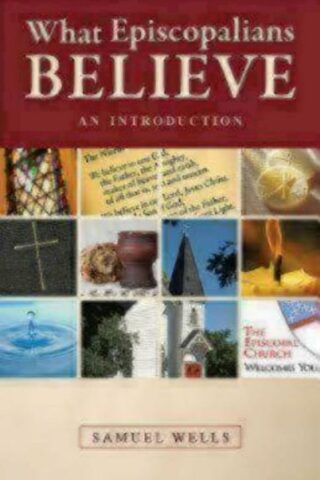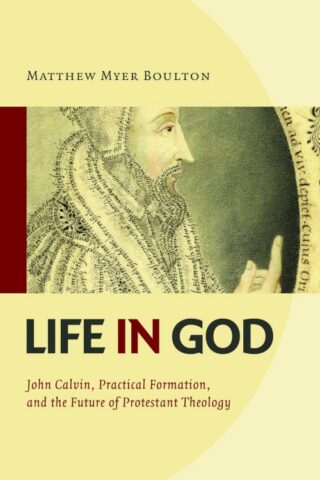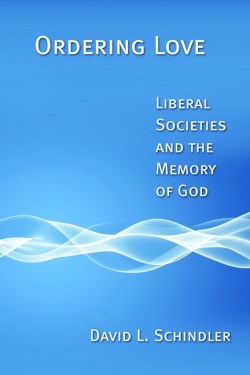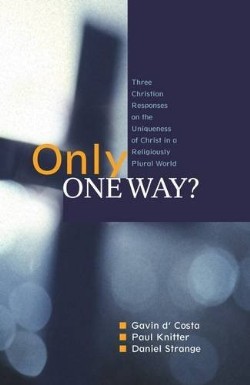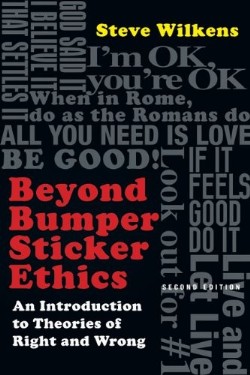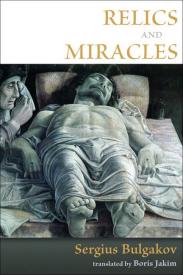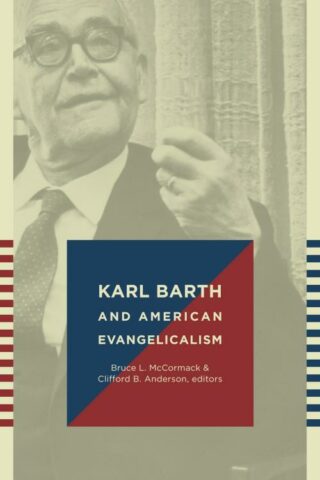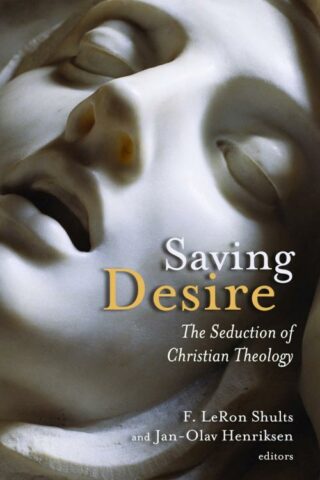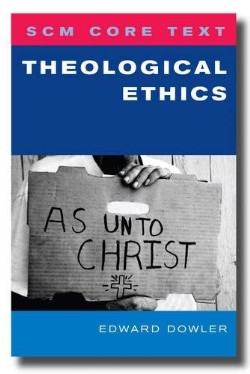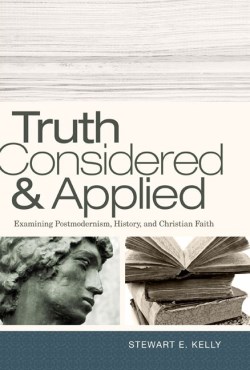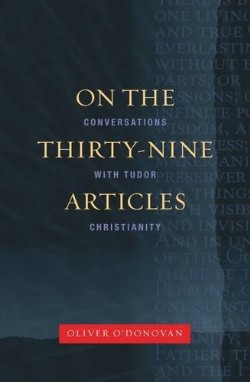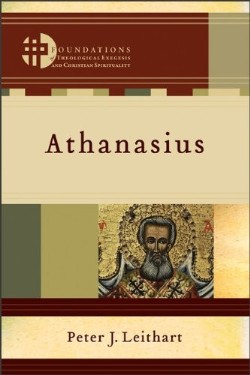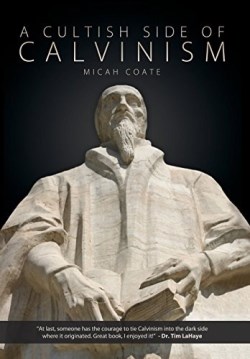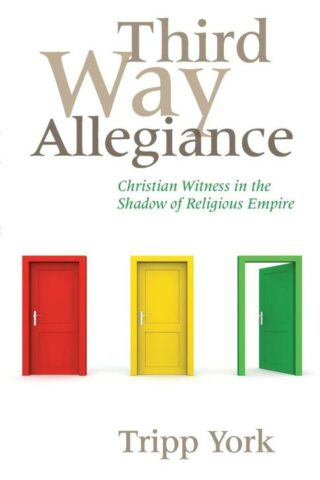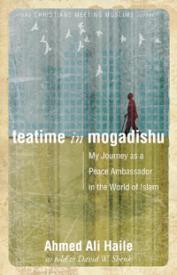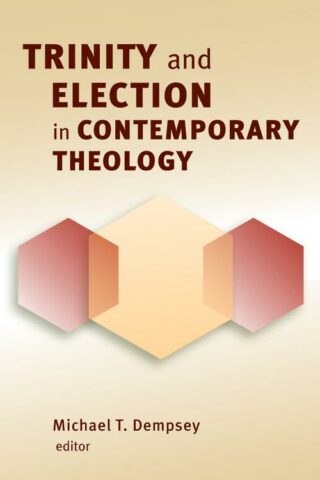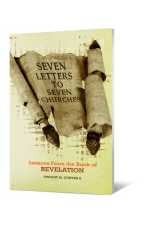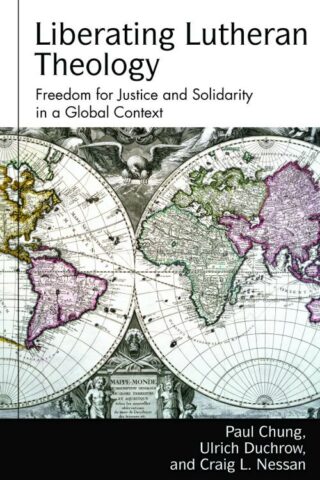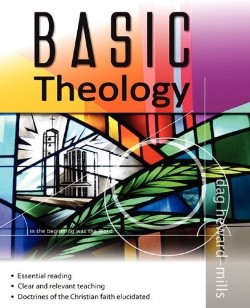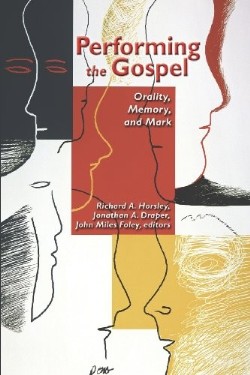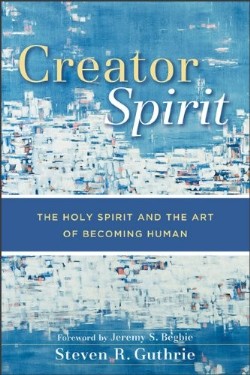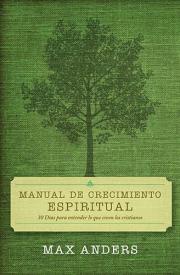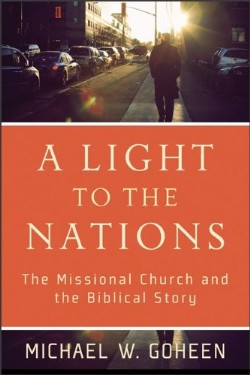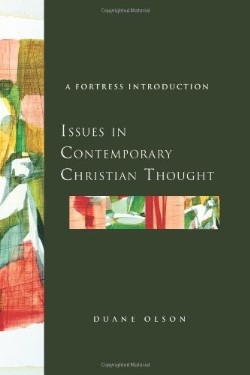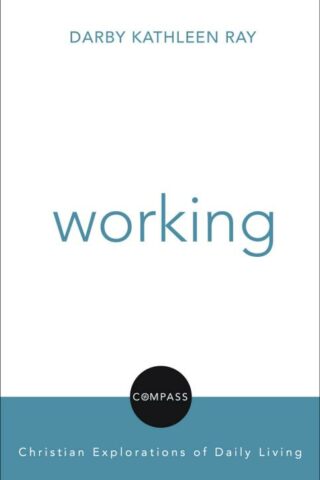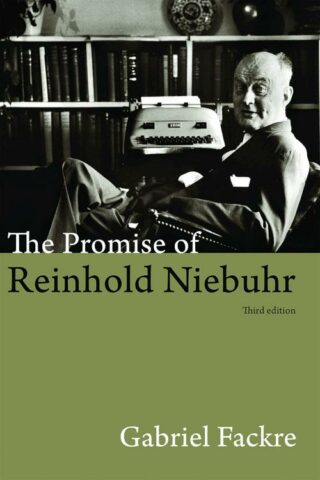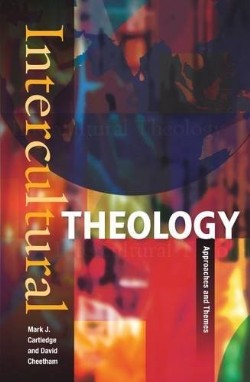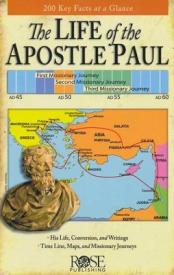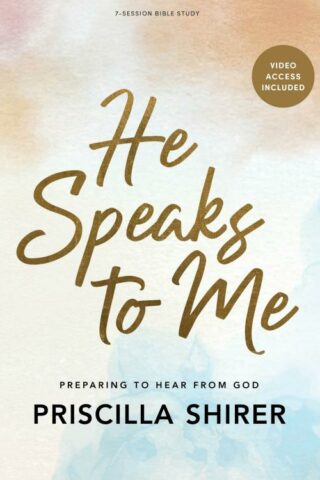Theology (Exegetical Historical Practical etc.)
Showing 1051–1100 of 2383 resultsSorted by latest
-
Evangelism And The Sovereignty Of God
$19.99Foreword
Preface
Introduction
1. Divine Sovereignty
2. Divine Sovereignty And Human Responsibility
3. Evangelism
4. Divine Sovereignty And EvangelismAdditional Info
If God is in control of everything, can Christians sit back and not bother to evangelize? Or does active evangelism imply that God is not really sovereign at all?J. I. Packer shows in this new edition to the popular IVP Classics how both of these attitudes are false. In a careful review of the biblical evidence, he shows how a right understanding of God’s sovereignty is not so much a barrier to evangelism as an incentive and powerful support for it.
With over 100,000 copies in print, Evangelism and the Sovereignty of God is truly a classic that should be read by every Christian.
Add to cartin stock within 3-5 days of online purchase
-
Joy Of Calvinism
$19.99A positive guide to the principles of Calvinism that shows how God’s love and our joy lie at the heart of this often misunderstood theology.
The Bible’s command to “rejoice continually” seems impossible and, frankly, unreasonable. Yet despite the apparent difficulty in fulfilling this commandment, Gregory Forster argues that Calvinism holds the key-namely that “real Calvinism is all about joy.”Forster passionately holds to this belief, and systematically demonstrates it by addressing popular misconceptions of what Calvinism is and is not. Dismantling negative expressions of Calvinist theology, Forster positively reiterates its fundamental tenents, showing how God’s love is the driving force behind every facet of Calvin’s doctrine of salvation.
Written accessibly, The Joy of Calvinism is an important addition to the conversation surrounding Calvinism and its advocates. Skeptics and those who have had negative perceptions of Calvinism, as well as Calvinists themselves, will find this a helpful resource for clearing up the controversies and grasping the winsomeness of the doctrines of grace.
Add to cartin stock within 3-5 days of online purchase
-
Introduccion A La Historia De – (Spanish)
$22.99Introduccion a la historia de la iglesia es una obra formidable en la que de manera amena, entretenida y sin dejar de ser academica, el Dr. Justo Gonzalez repasa los acontecimientos fundamentales que sucedieron en la historia de la iglesia y que le han dado cuerpo. Este libro es fundamental como introduccion para entender el porque la iglesia tiene la forma que tiene en la actualidad, y servira de base para cualquiera que desee adentrarse en los detalles de tan extensa y a veces complicada historia.
Written in Spanish by the renown Hispanic author Justo L. Gonzalez, this easy-to-understand and entertaining, yet academic introduction to the history of the church reviews the major events that happened in the history of the church and how they shape today’s church. This book is ideal for helping readers understand today’s church structure, and serves as guide for those interested in the extensive, and at times, complicated history of the church.
Add to cartin stock within 3-5 days of online purchase
-
Changing Churces : An Orthodox Catholic And Lutheran Theological Conversati
$39.99Sharp controversies – about biblical authority, the ordination of women, evangelical “worship styles,” and the struggle for homosexual “inclusion” – have rocked the Lutheran church in recent decades. In Changing Churches two men who once communed at the same Lutheran Eucharistic table explain their similar but different decisions to leave the Lutheran faith tradition – one for Orthodoxy, the other for Roman Catholicism. Here Mickey L. Mattox and A. G. Roeber address the most difficult questions Protestants face when considering such a conversion, including views on justification, grace, divinization, the church and its authority, women and ministry, papal infallibility, the role of Mary, and homosexuality. They also discuss the long-standing ecumenical division between Rome and the Orthodox patriarchates, acknowledging the difficult issues that still confront those traditions from within and divide them from one another.
Add to cartin stock within 3-5 days of online purchase
-
Is There More
$10.99Think you know everything there is to know about the life that lies beyond this one?
Think again.
Questions about life beyond death are always with us. In this classic volume, Leslie Weatherhead answers personal and important questions about heaven, hell, and the future God has in store for us.
“Eternal life is . . . a quality and not just a quantity; . . . a quality of communion with God that clearly begins now.
You know, people talk about the afterlife and they say, ‘He’s gone to be with God.’ But he has always been with
God, and the highest heaven doesn’t mean that God exists in any fuller measure. It can only mean that our power
of communion deepens. But one of the marvelous things about the Christian gospel is that the offer of eternal life is
here and now.” -from chapter 1Add to cartin stock within 3-5 days of online purchase
-
Practicing Theological Interpretation
$30.58Can theological inquiry co-exist with rigorous academic study of the Bible? Examining how theological interpretation works at an exegetical level, Green explores the relationship between hermeneutics and Christian formation, history’s role in interpretation, the tension between ecumenical creeds and witness of Scripture, and the ways our faith communities shape our reading of the biblical text.
Add to cartin stock within 3-5 days of online purchase
-
Christian Theology In Practice
$37.99For the past fifty years, scholars in both pastoral and practical theology have attempted to recapture human religious experience and practice as essential sites for theological engagement – redefining in the process what theology is, how it is done, and who does it. In this book Bonnie J. Miller-McLemore shows how this trend in scholarship has led to an expanded subject matter, alternative ways of knowing, and richer terms for analysis in doing Christian theology.Tracing more than two decades of her own search for a more inclusive discipline – one that truly grapples with theology in the midst of life – Christian Theology in Practice shows not only where Miller-McLemore herself has traveled in the field but also how pastoral and practical theology has developed during this time. Looking forward, Miller- McLemore calls on the academy and Christian congregations to disrupt conventional theological boundaries and to acknowledge the multiplicity of shapes and places in which the “wisdom of God” appears.
Add to cartin stock within 3-5 days of online purchase
-
Mere Apologetics : How To Help Seekers And Skeptics Find Faith (Reprinted)
$16.99Throughout history there have been great and articulate defenders of the faith, from Augustine and Aquinas to Jonathan Edwards, G. K. Chesterton, Francis Schaeffer, and C. S. Lewis. But with new challenges comes the need for a fresh apologetic that specifically addresses the arguments levied against faith in our time of scientific atheism and skepticism.
In the spirit of C. S. Lewis’s Mere Christianity, Alister McGrath’s Mere Apologetics seeks to equip readers to engage gracefully and intelligently with the challenges facing the faith today while drawing appropriately on the wisdom of the past. Rather than supplying the fine detail of every apologetic issue in order to win arguments, Mere Apologetics teaches a method that appeals not only to the mind but also to the heart and the imagination. This highly accessible, easy-to-read book is perfect for pastors, teachers, students, and lay people who want to speak clearly and lovingly to the issues that confront people of faith today.
Add to cartin stock within 3-5 days of online purchase
-
Anabautismo Al Desnudo – (Spanish)
$13.99Los cristianos anabautistas existen desde hace alrededor de 500 aos. Como se ve un anabautismo sin el ropaje de las tradiciones Amish y Menonitas? Stuart Murray intenta quitar las capas que se han acumulado a lo largo de la historia para llegar a los componentes centrales de la fe Anabautista. Intenta explorar lo que esto significa para su propio contexto y el nuestro. El seguimiento de Jesus nos desafia, nos inspira y nos anima a adorarle y seguirle con todo nuestro corazon. Lea este libro y contagiese de una vision de fe radical para su vida!
Anabaptist Christians have been around for almost five hundred years. But what does Anabaptism look like when not clothed in Mennonite or Amish traditions? Writing from Great Britain, Stuart Murray peels back the layers to reveal the core components of Anabaptism – and what they mean for faith in his context and ours. It’s a way of following Jesus that challenges, disturbs, and inspires us, summoning us to wholehearted discipleship and worship.
This popular 2010 book – over ten thousand sold – is now available in Spanish.Add to cartin stock within 3-5 days of online purchase
-
From Sacrament To Contract (Expanded)
$50.00This newly revised and enlarged edition of John Witte’s authoritative historical study explores the interplay of law, theology, and marriage in the Western tradition. Witte uncovers the core beliefs that formed the theological genetic code of Western marriage and family law. He explores the systematic models of marriage developed by Catholics, Lutherans, Calvinists, Anglicans, and Enlightenment thinkers, and the transformative influence of each model on Western marriage law. In addition, he traces the millennium-long reduction of marriage from a complex spiritual, social, contractual, and natural institution into a simple private contract with freedom of entrance, exercise, and exit for husband and wife alike.
This second edition updates and expands each chapter and the bibliography. It also includes three new chapters on classical, biblical, and patristic sources.
Add to cartin stock within 3-5 days of online purchase
-
Holy Spirit In Mission
$24.99The church has been called to participate in God’s mission in the world. But without a robust, biblical sense of the Spirit’s action, how can we be sure we’re fulfilling that call? In this innovative work of missional pneumatology, Gary Tyra synthesizes charismatic and evangelical perspectives to flesh out the nature and purpose of the church’s preaching, proclamation and service.
Add to cartin stock within 3-5 days of online purchase
-
Friends Of The Law
$69.98Charges of forgery, heresy, legalism, and immorality turn on the question of whether Martin Luther taught a third use of the Law for the Christian life. For the past sixty years, well-meaning scholars believed they settled the question-with dire consequences.
Friends of the Law sets forth a completely new body of evidence that shows how little Luther’s teaching was understood. This new book looks at the doctrine of the Law and invites a new consensus that could change the way Christians view the Reformation and even their daily walk with God.
Contains
*data tables
*translations of passages not available in English
*appendices
*bibliography on Law and GospelAdd to cartin stock within 3-5 days of online purchase
-
Holy Spirit : Activating Gods Power In Your Life
$18.99Exactly who is the Holy Spirit, and what does He do? In this classic volume, Graham offers a sensitive and comprehensive portrait of this much discussed but often misunderstood member of the Trinity.
Add to cartin stock within 3-5 days of online purchase
-
Like Spring Rain
$57.26Looking at key concepts such as sealing, regeneration, indwelling, filling, baptism, spiritual gifts and speaking in tongues, this book seeks to set the Pentecostal and Toronto experiences on a biblical, doctrinal basis which is both evangelical and conservative.
Add to cartin stock within 3-5 days of online purchase
-
ESV And The English Bible Legacy
$20.00Describes the chief characteristics of historic English Bible translation, and places the ESV in this classical stream.
Modern Bible translations are at a crossroads as multiple translation philosophies argue that Bible translations ought to be done a certain way. So who’s right? And what has been the historic view of English Bible translators?
Leland Ryken, an expert on the literature of the Bible, brings clarity to questions of how modern Bible translations should be viewed in their historical context. He begins by tracing the history of English Bible translation from William Tyndale to the King James Bible, outlining important distinctions. In the view of these historic translators, there is a right way and a wrong way to translate the Bible.
Ryken concludes that essentially literal Bible translations best adhere to the legacy of classic English Bible translation. He contends that the English Standard Version is a true heir of this classical stream and concludes with an argument on why the ESV can serve as the translation of choice for Christians in all walks of life. This book will be a great resource for Christians who have questions about why we have different Bible translations and how to choose between them.
Add to cartin stock within 3-5 days of online purchase
-
Like Spring Rain
$37.26Looking at key concepts such as sealing, regeneration, indwelling, filling, baptism, spiritual gifts and speaking in tongues, this book seeks to set the Pentecostal and Toronto experiences on a biblical, doctrinal basis which is both evangelical and conservative.
Add to cartin stock within 3-5 days of online purchase
-
Justification : Five Views
$30.99James Beilby and Paul R. Eddy moderate this five-way discussion on the Pauline doctrine of justification. The traditional Reformed view, the progressive Reformed view, the new perspective, the deification/theosis view and the Roman Catholic view are each given a fair hearing.
Add to cartin stock within 3-5 days of online purchase
-
Union With Christ (Reprinted)
$30.58Accomplished theologian J. Todd Billings recovers the biblical theme of union with Christ for today’s church, making a fresh contribution to the theological discussion with important applications for theology and ministry. Drawing on Scripture and classic Reformed theology, Billings shows how a theology of union with Christ can change the way believers approach worship, justice, mission, and the Christian life. The book connects to current debates on the New Perspective on Paul and justification and illuminates how union with Christ can change the theological conversation about thorny topics such as total depravity and the mystery of God. It offers a unique, lively exploration of what’s so amazing about being united to the living Christ.
Add to cartin stock within 3-5 days of online purchase
-
Gods Grand Design
$21.99Jonathan Edwards produced a comprehensive theology of the Christian life that started with God’s glory and ended with all creation returning to that glory. It was a vision that remains quite simply magnificent. And yet it is a theological vision that has not been adequately explored until now.
Professor and pastor Sean Michael Lucas has converted his years of teaching into this valuable overview of Edwards’s theology, exploring both redemption history and the application of God’s redemptive work in the individual. As Lucas unpacks Edwards’s vision in this accessible, two-part framework, the resulting revelation of God’s glorious work will strengthen our understanding of Edwards and of our own Christian life.
Add to cartin stock within 3-5 days of online purchase
-
Theological Dictionary Of The Old Testament Volume 1
$68.99This multivolume work is still proving to be as fundamental to Old Testament studies as its companion set, the Kittel-Friedrich Theological Dictionary of the New Testament, has been to New Testament studies.Beginning with “father,” and continuing through the alphabet, the TDOT volumes present in-depth discussions of the key Hebrew and Aramaic words in the Old Testament. Leading scholars of various religious traditions (including Roman Catholic, Lutheran, Reformed, Anglican, Greek Orthodox, and Jewish) and from many parts of the world (Denmark, France, Germany, Great Britain, Greece, Israel, Italy, the Netherlands, Norway, Sweden, Switzerland, and the United States) have been carefully selected for each article by editors Botterweck, Ringgren, and Fabry and their consultants, George W. Anderson, Henri Cazelles, David Noel Freedman, Shemaryahu Talmon, and Gerhard Wallis.The intention of the writers is to concentrate on meaning, starting from the more general, everyday senses and building to an understanding of theologically significant concepts. To avoid artificially restricting the focus of the articles, TDOT considers under each keyword the larger groups of words that are related linguistically or semantically. The lexical work includes detailed surveys of a word’s occurrences, not only in biblical material but also in other ancient Near Eastern writings. Sumerian, Akkadian, Egyptian, Ethiopic, Ugaritic, and Northwest Semitic sources are surveyed, among others, as well as the Qumran texts and the Septuagint; and in cultures where no cognate word exists, the authors often consider cognate ideas.TDOT’s emphasis, though, is on Hebrew terminology and on biblical usage. The contributors employ philology as well as form-critical and traditio-historical methods, with the aim of understanding the religious statements in the Old Testament. Extensive bibliographical information adds to the value of this reference work.This English edition attempts to serve the needs of Old Testament students without the linguistic background of more advanced scholars; it does so, however, without sacrificing the needs of the latter. Ancient scripts (Hebrew, Greek, etc.) are regularly transliterated in a readable way, and meanings of foreign words are given in many cases where the meanings might be obvious to advanced scholars. Where the Hebrew text versification differs from that of English Bibles, the English verse appears in parentheses. Such features will help all earnest studen
Add to cartin stock within 3-5 days of online purchase
-
Heaven On Earth
$44.95With the coming of Jesus the Christ, the covenant of the New Testament is created. Therein can be found new spiritual guidelines that those who love God will gravitate to as a consequence of being saved. In the Sermon on the Mount, Jesus specifically identifies eight states of blessedness that are pleasing to God. In other verses of Scripture contained in the New Testament, additional spiritual attitudes and responses are described that help believers to live in accordance with the will of God.
The degree to which we live in accordance with God’s will, (presented herein as codes) is the degree to which we attain heaven on earth, leading to perfect happiness with Jesus in the world to come. The codes consist of commandments and other rules of behavior; kernels of wisdom and truths revealed by Jesus; and spiritual guidelines intended to assist us on the road to salvation. They will be numbered and discussed as encountered sequentially in the New Testament, starting with the gospel according to Matthew and ending with the book of Revelation.
The appropriate verses of Scripture from which each code is derived will accompany them and be highlighted. Explanatory remarks are included whenever greater clarity or additional emphasis is needed. All codes and commentary are derived from the words of Jesus as recorded in the New Testament of the Holy Bible.
Add to cartin stock within 3-5 days of online purchase
-
Heaven On Earth
$34.95With the coming of Jesus the Christ, the covenant of the New Testament is created. Therein can be found new spiritual guidelines that those who love God will gravitate to as a consequence of being saved. In the Sermon on the Mount, Jesus specifically identifies eight states of blessedness that are pleasing to God. In other verses of Scripture contained in the New Testament, additional spiritual attitudes and responses are described that help believers to live in accordance with the will of God.
The degree to which we live in accordance with God’s will, (presented herein as codes) is the degree to which we attain heaven on earth, leading to perfect happiness with Jesus in the world to come. The codes consist of commandments and other rules of behavior; kernels of wisdom and truths revealed by Jesus; and spiritual guidelines intended to assist us on the road to salvation. They will be numbered and discussed as encountered sequentially in the New Testament, starting with the gospel according to Matthew and ending with the book of Revelation.
The appropriate verses of Scripture from which each code is derived will accompany them and be highlighted. Explanatory remarks are included whenever greater clarity or additional emphasis is needed. All codes and commentary are derived from the words of Jesus as recorded in the New Testament of the Holy Bible.
Add to cartin stock within 3-5 days of online purchase
-
What Episcopalians Believe
$19.95The most recent and accessible introduction to Episcopalian beliefs
Episcopalian identity tends to focus on history and worship, and sometimes on ethics – but “cradle” and new Episcopalians – plus seekers – will benefit from having a brief, accessible summary of the Christian faith as seen through an Episcopalian lens.
There are two underlying convictions behind the book: FIRST, that ecumenism is at the heart of the Episcopal faith. Episcopalians are well placed to offer themselves as a place of convergance between Roman Catholics and Protestants, and even between Roman Catholics and the Orthodox. SECONDLY, in the current conflicts both within the Episcopal Church and between the Episcopal Church and some of its Anglican Communion partners, there is no fundamental difference in doctrine. The book is an attempt to portray what all parties have in common.
Add to cartin stock within 3-5 days of online purchase
-
Life In God
$31.99Readers of John Calvin’s Institutes of the Christian Religion often regard this masterwork of doctrine as a cold, sterile, and merely intellectual project. But Matthew Myer Boulton reads it very differently. In Life in God: John Calvin, Practical Formation, and the Future of Protestant Theology Matthew Myer Boulton argues that for Calvin, Christian doctrine is properly conceived and articulated primarily for the sake of practical Christian formation–the immersive, restorative training for wholeness and holiness embodied in the church’s disciplinary treasury.
Although Calvin famously opposed the cloister, Boulton shows that his purpose was not the eradication but the democratization of monastic spiritual disciplines. Just as Calvin endorsed the “priesthood of all believers,” so too did he envision that ordinary disciples could live with God daily, consecrate themselves to the art of knowing God, and embrace spiritually formative practices including scriptural and theological study, daily prayer and worship, regular Psalm singing, frequent reception of the Lord’s Supper, renunciation of “the world,” rigorous moral accountability, and the like.
Add to cartin stock within 3-5 days of online purchase
-
Ordering Love : Liberal Societies And The Memory Of God
$53.99David Schindler’s book Ordering Love: Liberal Societies and the Memory of God is a metaphysical study of God, love, technology, and culture in modern society.
Schindler argues that “reality” most basically and properly considered, is an order of love; a gift that finds its objective only in an entire way of life. Love is what first brings things into existence, and everything exists in, through, and for love. With this understanding of reality, Schindler explores how modern culture marginalizes love, regarding it at best as a matter of piety or goodwill rather than as the very stuff that makes our lives and the things of the world real.
Schindler examines how Western civilization’s fixation with technology – especially its displacement of experience with experiment and its privileging of knowing and making – has undermined its capacity to build an authentic human culture. Schindler sees this as a technological age not simply because of technological advancements but because of the way we think as the result of our technological orientation. He shows, within the context of politics, economics, science, and cultural and professional life generally, that God-centered love is what gives things their deepest and most proper order and meaning.
Add to cartin stock within 3-5 days of online purchase
-
Only One Way
$45.00This book presents three different, influential and representative theological approaches towards the world religions. Students are not only introduced to the field, but get three passionate and intelligent ‘takes’ on what is at stake. By means of a response to each of the primary essays, the authors are put into interaction with each other, and are also engaged with the most contemporary scholarship in the field of theology of religions. This sustained and high level critical interaction between the authors provides a feature that is not to be found in any other current work in theology of religions. The three views represent: conservative Roman Catholic Christianity (D’Costa), Reformed evangelical Christianity (Strange) and liberationist liberal Christianity (Knitter). This book will therefore appeal to a very wide theological market from all sections of the theological spectrum.
Add to cartin stock within 3-5 days of online purchase
-
Beyond Bumper Sticker Ethics (Expanded)
$27.99Preface And Acknowledgments
1. Bumper Stickers And Ethical Systems
2. When In Rome, Do As The Romans Do: Cultural Relativism
3. Look Out For Number One: Ethical Egoism
4. I Couldn’t Help Myself: Behaviorism
5. Survival Of The (Ethical) Fittest: Evolutionary Ethics
6. The Greatest Happiness: Utilitarianism
7. It’s Your Duty: Kantian Ethics
8. Be Good: Virtue Ethics
9. The Moral Of The Story Is . . . : Narrative Ethics
10. All You Need Is Love: Situation Ethics
11. Doing What Comes Naturally: Natural Law Ethics
12. God Said It, I Believe It, That Settles It: Divine Command Theory
13. Unraveling The Options
NotesAdditional Info
Ideas have consequences. And sometimes those ideas can be squeezed in to slogans, slapped on bumper stickers and tweeted into cyberspace. These compact messages coming at us from all directions often compress in a few words entire ethical systems. It turns out that there’s a lot more to the ideas behind these slogans–ideas that need to be sorted out before we make important moral decisions as individuals or as societies.In this revised and expanded edition of Steve Wilkens’s widely-used text, the author has updated his introductions to basic ethical systems:
cultural relativism
ethical egoism
utilitarianism
behaviorism
situation ethics
Kantian ethics
virtue ethics
natural law ethics
divine command theoryHe has also added two new chapters:
evolutionary ethics
narrative ethicsWith clarity and wit Wilkens unpacks the complicated ideas behind the slogans and offers Christian evaluations of each.
Add to cartin stock within 3-5 days of online purchase
-
Relics And Miracles
$27.99Esteemed translator Boris Jakim here presents for the first time in English two major theological essays by Sergius Bulgakov. In “On Holy Relics,” Bulgakov’s 1918 response to Bolshevik desecration of the relics of Russian saints, he develops a comprehensive theology of relics, connecting them with the Incarnation and showing their place in sacramental theology in general. In “On the Gospel Miracles” (1932), Bulgakov presents a Christological doctrine of the Gospel miracles, focusing on the question of how human activity relates to the works of Christ. Both works are suffused with Bulgakov’s faith in Christian resurrection – and with his signature “religious materialism,” where the corporeal is illuminated by the spiritual and the earthly is transfigured into the heavenly.
Add to cartin stock within 3-5 days of online purchase
-
Karl Barth And American Evangelicalism
$41.99This book brings together essays first presented at the second annual conference on Karl Barth’s theology cosponsored by the Center for Barth Studies at Princeton Theological Seminary and the Karl Barth Society of North America, which took place at Princeton in 2007. The insights offered here have much to say about the current situation in theology, and they provide a basis for moving evangelical engagement with Barth to a new stage in its history.
Add to cartin stock within 3-5 days of online purchase
-
Saving Desire : The Seduction Of Christian Theology
$22.99Traditional Christian theology has generally treated desire as a dark and negative force intimately related to sin – something to be restricted and repressed, closeted and controlled. But, according to LeRon Shults and Jan-Olav Henriksen’s Saving Desire, we see only part of the picture if we do not also perceive that desire can be a powerful force for great good. Grounding their work firmly in the experiential realm of human life, the eight eminent theologians contributing to this volume celebrate together the positivity, the sociality, and the physicality of saving desire – that is, humankind’s innate desire not only for the “good life” but also, more vitally, for the life-transforming goodness of God.
Add to cartin stock within 3-5 days of online purchase
-
Theological Ethics
$44.99“The SCM Core Text “”Theological Ethics”” is intended for those studying Christian ethics at upper undergraduate level. The book offers a discussion of Christian moral thought in a variety of key areas. Many discussions of ethics start by considering particular issues. By contrast, this book gives a presentation of the patterns and traditions of thought that lie behind some of these discussions, in the hope that this will enable particular issues to be fully understood. The book begins by asking ‘What is Theological Ethics?’ and proceeds to introducing different approaches to Ethics, Ethics in the Catholic and Protestant traditions and subjects such as Sin, Grace and Free Will (Augustine), Natural Law and the Human Good (Thomas Aquinas), Virtue, Conscience and Love. Everyone studying theology, whether in a ministerial or a university context, has to study Ethics and this is an accessible and student-friendly textbook on the subject.”
Add to cartin stock within 3-5 days of online purchase
-
Truth Considered And Applied
$29.99For philosophy and theology students, Truth Considered and Applied examines the leading theories of truth in relation to postmodernism, history, and the Christian faith. Author Stewart E. Kelly defends Christianity in the face of postmodernist challenges that would label such religious faith as merely one version of truth among many in a pluralistic world. Likewise, in looking at Christianity as a historical faith, Kelly supports the need for Christians to develop a hermeneutic that does justice to the biblical texts and our informed understanding of the past in general; because if a genuine past cannot be recovered in some meaningful sense, the claims of Jesus being incarnate and risen from the dead are seriously jeopardized.
Add to cartin stock within 3-5 days of online purchase
-
On The Thirty-Nine Articles
$32.00The Thirty-Nine Articles, together with the Book of Common Prayer, form the foundation of Anglican theology. Yet there are very few extended treatments of them. Oliver O’Donovan relates the Articles to the exhilarating and troubled century in which they took shape. He also shows how the distinctive insights and values of a past age relate to the demands of today’s world. ‘What I propose in this case – is not to talk solely about the Articles, but to talk about God, mankind (sic!), and redemption, the central matters of the Christian faith, and to take the Tudor authors with me as companions in discussion. Two voices will be speaking – each raising the questions that Christian faith in his time forces upon him.’ Here is a new edition of his book on one of the key texts of Anglican identity by one of the UK’s leading theologians. The book has been out of print for some time and there have been repeated calls for a new edition with a new introduction which engages with more recent developments and offers the text to a new gen
Add to cartin stock within 3-5 days of online purchase
-
Athanasius
$35.29This volume by a respected theologian offers fresh consideration of the work of famous fourth-century church father Athanasius, giving specific attention to his use of Scripture, his deployment of metaphysical categories, and the intersection between the two. Peter Leithart not only introduces Athanasius and his biblical theology but also puts Athanasius into dialogue with contemporary theologians. This volume launches the series Foundations of Theological Exegesis and Christian Spirituality. Edited by Hans Boersma and Matthew Levering, the series critically recovers patristic exegesis and interpretation for contemporary theology and spirituality. Each volume covers a specific church father and illuminates the exegesis that undergirds the Nicene Creed. The series contributes to the growing area of theological interpretation and will appeal to both evangelical and Catholic readers.
Add to cartin stock within 3-5 days of online purchase
-
Cultish Side Of Calvinism
$48.25A Cultish Side of Calvinism was first written for the purpose of clarifying Calvinistic theology, but Coate’s research led him to the conclusion that it shares significant similarities to unorthodox Christian faiths. Coate’s scrutiny will prove to be biblically balanced and practically engaging for anyone remotely interested in Christian theology. As a pastor, speaker, and hospital chaplain, Micah has experienced firsthand Calvinism’s effect in Christian culture. He clearly writes how you can beware the pitfalls of Calvinism’s overly systematized theology. If the rise of a cultish theology grows within Christendom, so must a true discernment of its claims and consequences. The same standard that has placed Mormons, Jehovah’s Witnesses, and Scientologists outside the Christian camp of orthodoxy has now, for the first time, placed the theology of Calvinism as being too cultish for comfort. Unlike any other book on the market, A Cultish Side of Calvinism not only shows that the theology of Calvinism is more systematic than biblical, but that it is comparable to almost any classic Christian cult. Most people know that Evangelical Christianity has rightly denounced theologies that differ in the essentials of the faith. Yet, due to its foothold on Christian ‘orthodoxy’, the theology of Calvinism has mainly gone unnoticed, leaving many young Christians unaware of the veiled and yet essential claims of their newly found theology. The September 2006 issue of Christianity Today sums up the previous claims that Calvinism is growing among a new generation of Christians. The story’s title says it all: “Young, Restless, Reformed. Calvinism is making a comeback-and shaking up the church.” If the claims of this book go unchecked and Calvinism is indeed “shaking up the church,” we should fear that it will tragically break up the body of Christ even further.
Add to cartin stock within 3-5 days of online purchase
-
3rd Way Allegiance
$21.58Part 1 – Our People
Part 2 – Our Politics
Part 3 – Our PraiseAdditional Info
In these passionate essays, Tripp York makes the case that both nations and the church require total allegiance and that Christians should choose Christ over state. Greg Boyd, Author, The Myth of a Christian Nation; and Pastor, Woodland Hills Church, says that “The quasi-Christian civic religion of America is like an immunization shot: people get just enough surrogate Christianity to keep them from getting the real thing! Third Way Allegiance is a powerful cure to this widespread diabolic affliction. I don’t know any work that so succinctly and effectively helps readers wake up to the way many values and practices of the American empire, and of the American church are opposed to the kingdom Jesus established. This well-written, provocative and insightful little book deserves to be–indeed, needs to be–in the hands of every American who is serious about following Jesus.” M. Therese Lysaught, Associate Professor and Director of Graduate Studies, Department of Theology, Marquette University, observes that “Drawing on a cloud of witnesses, Tripp York juxtaposes the politics and liturgies of Christianity with those of U.S. culture, challenging contemporary Christians to rethink the powers that truly hold their allegiances. Those who allow York’s vignette’s and questions to confront their assumptions cannot help but find their lives changed.” J. Nelson Kraybill, President Emeritus, Associated Mennonite Biblical Seminary, warns: “Reader beware! This collection of essays may cause insomnia, bold new insight, heated debate, and exuberant bursts of radical discipleship. Tripp York agitates, stimulates, and occasionally pontificates. But if you take Jesus seriously, you’d better listen up. Here is a mother lode of rich ethical reflection, mined by a Christian scholar and teacher with a heart for the church. Third Way Allegiance is perfect as a small group study guide, an adult education elective, or a personal wake-up call to lived faith.”Add to cartin stock within 3-5 days of online purchase
-
Teatime In Mogadishu
$14.99Abmed Ali Haile tells his life story of growing up Somalia, becoming a Christian as a teenager, meeting Mennonite missionaries in Somalia, studying at Goshen College and Associated Mennonite Biblical Seminary, and then going back to his homeland to do mediation work among clans in Somalia. Although injured during an attack in Mogadishu, he has kept going back to Africa to serve Somalis.
Add to cartin stock within 3-5 days of online purchase
-
Being Holy In The World
$37.99David L. Schindler is the foremost American participant in the Communio movement in Catholic theology. Over the last thirty-five years, his profound theological and ontological vision has led him to probe our most urgent cultural problems to their deepest metaphysical roots, comprehensively evaluating them in the light of Trinitarian faith. The first book-length study of Schindler’s thought, Being Holy in the World explores Schindler’s Trinitarian theology, ecclesiology, anthropology, and metaphysics in the context of the encounter between Christianity and contemporary culture.
Add to cartin stock within 3-5 days of online purchase
-
Trinity And Election In Contemporary Theology
$41.99A lively debate has been heating up among some of the foremost authorities on Karl Barth as they seek to answer a crucial point of contention: Is the Trinity complete in itself from all eternity or is it constituted by the eternal decision of election? Trinity and Election in Contemporary Theology offers a collection of essays that seek to address this question through rigorous and critical treatment of select topics in the theology of Karl Barth by contemporary interpreters from both Protestant and Roman Catholic perspectives.
Add to cartin stock within 3-5 days of online purchase
-
7 Letters To Seven Churches
$12.991. Letters To The Church
2. First Loves And Dear John Letters
3. Be Faithful
4. Get Off The Fence
5. Give Jezebel A Message From Me
6. Wake Up!
7. Carpe Diem
8. Knock-Knock
9. One More LetterAdditional Info
Sometimes, churches need a little help. These days, some don t know who they are and don t know what they are supposed to be doing. Churches today are trying anything and everything to be effective, but are bewildered by worship styles, spectator syndrome, and consumerism.In the meantime, people are hungry for a relationship with a God who has substance, a God with character and integrity, and a God of grace. And they re having trouble finding such a God in churches today.
Seven Letters to Seven Churches is written to challenge the church to be what God created us to be and then do what God created us to do: join Him in His mission to save the world.
Add to cartin stock within 3-5 days of online purchase
-
Liberating Lutheran Theology
$65.00Foreword Karen L. Bloomquist
IntroductionPart One. Latin America/North America/Europe
1. Liberation Theology And Latin American History
2. Liberation Theology’s Critique Of Luther’s Two-Kingdoms Doctrine
3. Christian Political Responsibility: Reappropriating Luther’s Two Kingdoms
4. Orthopraxis And Martyrdom: The Influence Of Latin American Liberation Theology On Systematic Theology In Europe And North AmericaPart Two. Asia/Europe/North America
5. God’s Mission And Emancipation: A Lutheran Theology Of Justification And Economic Justice
6. Dietrich Bonhoeffer And The Confessing Church: An Asian Minjung Theological Perspective
7. Emancipation And Inculturation In A Multicultural World: A Lutheran Contribution
8. Communio Sanctorum And Filial Piety: Ecclesiology For InculturationPart Three. Europe/North America/Asia
9. Property-Money Economies And Empires As Contexts For Biblical, Reformation, And Contemporary Ecumenical Theology
10. Ghandi: Overcoming Western Violence In Conversation With Martin Luther
11. Solidarity And Cooperation As Theological, Psychological, And Socioeconomic Response To Neoliberal DestructionPart Four. Conclusion
12. Expanding The Conversation: Facing The Challenge Of African And Asian PerspectivesAppendix A.
Transforming Theology And Life-Giving Civilization: The Changseong ConsultationAppendix B.
Linking Poverty, Wealth And Ecology In Africa: The Dar Es Salaam StatementAbbreviations
Notes
Bibliography
IndexAdditional Info
Spanning the continents, three internationally respected theologians demonstrate how the thought and legacy of Martin Luther can serve in an ecumenical and interfaith context as a resource for a radical critique of global economics and culture.Lutheran Christianity originated in its own era of economic and cultural crisis. One of the great misinterpretations of Martin Luther has considered his heritage as fundamentally reactionary, seeking to preserve the political status quo. Instead, set free by the biblical message of liberation, this book wields Luther’s theology to engage the reality of poverty, hunger, oppression, and ecological degradation caused by an imperial capitalism as the most urgent theological issues in the contemporary world. The volume demonstrates the liberating possibilities of theology done out of a biblical and Lutheran perspective for the economic and cultural crises facing the church in the present century.
Add to cartin stock within 3-5 days of online purchase
-
Basic Theology
$43.73A clear and easy-to-read guide on foundational Christian doctrines
* Lucid expose on the infallible authority of the Scriptures
* A necessary foundation for God’s people
* The secret to power with God: developing intimacy
* Clear teaching on the first principles of the doctrines of Christ
* Sound instruction on the redemptive work of Christ
* Biblically accurate information on eternity
* Scriptural analyses of demons and the Christians power against them
* Discover helpful steps to the anointing of the Holy Spirit
Add to cartin stock within 3-5 days of online purchase
-
Performing The Gospel
$48.33This ground-breaking volume gathers the best new work in Gospels criticism centered on how the Gospels actually came to be: through oral tradition, story performance, and cultural memory.
Contributors include:
John Miles Foley
Martin Jaffee
Jonathan A.Draper
Ellen Aitken
Holly Hearon
Vernon K. Robbins
Whitney Shiner
Jan Assmann
Jens Schroeter
Richard A. Horsley.Add to cartin stock within 3-5 days of online purchase
-
Creator Spirit : The Holy Spirit And The Art Of Becoming Human
$35.29Art is often viewed as being inherently spiritual. But what does it mean to describe an experience of art or beauty as “spiritual”? Is there a relationship between the spiritual experience a person has in the presence of a work of art and the Holy Spirit of Christian faith? Skilled theologian, musician, and educator Steven Guthrie examines areas of overlap between spirituality, human creativity, and the arts with the goal of sharpening and refining how we speak and think about the Holy Spirit. By exploring various connections between art and spirituality, he helps Christians better understand the doctrine of the Holy Spirit and offers a clear, engaging theology of the arts. The book includes a foreword by renowned theologian and musician Jeremy Begbie.
Add to cartin stock within 3-5 days of online purchase
-
Light To The Nations (Reprinted)
$32.94There is a growing body of literature about the missional church, but the word missional is often defined in competing ways with little attempt to ground it deeply in Scripture. Michael Goheen, a dynamic speaker and the coauthor of two popular texts on the biblical narrative, unpacks the missional identity of the church by tracing the role God’s people are called to play in the biblical story. Goheen shows that the church’s identity can be understood only when its role is articulated in the context of the whole biblical story–not just the New Testament, but the Old Testament as well. He also explores practical outworkings and implications, offering field-tested suggestions for contemporary churches.
Add to cartin stock within 3-5 days of online purchase
-
Issues In Contemporary Christian Thought
$48.33Preface
Part One: Understanding Contemporary Christian Thought
1. Setting The Stage: Christianity And The Developments Of Modernity
2. Surveying The Field: Options In Contemporary Christian ThoughtPart Two: Classical Christian Thought And Contemporary Transformations
3. God And Cosmology
4. Christ And History
5. Heaven, Hell, And Human DestinyPart Three: Christianity And Cultural Transformations
6. Christianity And Other Religions
7. Christianity And Feminism
8. Christianity And Homosexuality
9. Christianity And The Natural EnvironmentDiscussion Questions And Further Reading
Notes
Glossary
IndexAdditional Info
Duane Olson’s new textbook uniquely focuses on the central points at issue in contemporary Christian reflection. Olson’s clear and concise overview roots contemporary questions firmly in Christian responses to the Enlightenment. This allows Olson to unfold those questions as bequeathed by modernity and to show how the radical reframing of the current period actually builds on the diversity of those lingering concerns.Olson discusses the range of contemporary opinions, their rationales, and what’s at stake. He illustrates these alternate frameworks as they play out in central concerns over the being of God in relation to the universe, how to understand the figure of Christ today, and the distinctively new notions of being human. Olson’s text includes reflection and research questions, suggestions for further reading, and a glossary.
Add to cartin stock within 3-5 days of online purchase
-
Working : Christian Explorations Of Daily Living
$31.66Working. We spend most of our waking hours doing it but rarely consider its theological meanings or implications. Is work a punishment or curse, an avenue to human flourishing or something else? Is there a distinctively Christian approach to working? Darby Ray, whose work on Christology and ethics has emphasized the surprising breadth and elasticity of the Christian past, lifts up key insights from Christian scripture and tradition and considers their implications for today’s complex, globalized world of work.
Ray suggests that for the triune God as for humans everywhere, working is an everyday practice fraught with both peril and promise. As an essential yet often dehumanizing dimension of human experience, work stands in continual need of serious Christian consideration. Working responds to this need with imagination and courage, providing an informative, accessible, and theologically compelling exploration of what is arguably the defining activity of our time.
Add to cartin stock within 3-5 days of online purchase
-
Promise Of Reinhold Niebuhr Third Edition
$21.99The Promise of Reinhold Niebuhr, first published in 1970, provides an introduction to the life and thought of Reinhold Niebuhr (1892-1971), arguably the most influential American theologian of the twentieth century. A standard text reworked for a new generation, Gabriel Fackre’s account of this iconic “visionary realist” is at once timeless and timely.
In this revised and updated third edition Gabriel Fackre
*Further clarifies Niebuhr’s point of view
*Critiques common misunderstandings about Niebuhr
*Applies Niebuhr’s thinking to contemporary theological and cultural movementsAdd to cartin stock within 3-5 days of online purchase
-
Intercultural Theology : Approaches And Themes
$60.99Intercultural Theology offers a set of groundbreaking essays that describe the nature of intercultural theology as a domain of theology that pays particular attention to the identity of non-western forms of Christianity in dialogue with western forms. It is theological discourse engaged in multi-disciplinary dialogue and therefore uses the insights from historical, socio-cultural, inter-religious and empirical studies. Intercultural theology is a development from previous discussions within mission studies, contextual theology, studies in world Christianity and Third World theology.
Add to cartin stock within 3-5 days of online purchase

